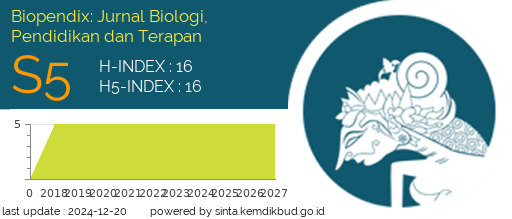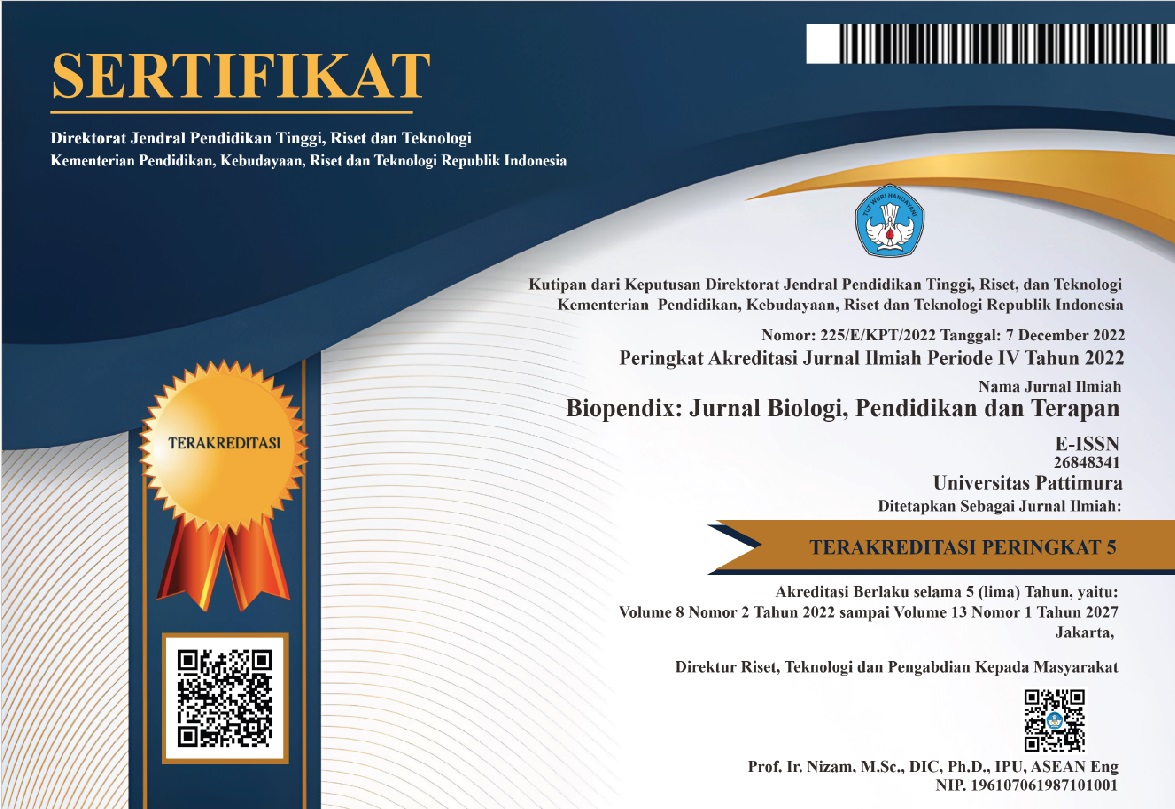PENGARUH EKSTRAK AIR BAWANG PUTIH (Allium sativum) TERHADAP MORTALITAS LARVA Crocidolomia binotalis PADA TANAMAN KUBIS
Abstract
Background: Garcil (Allium sativum) is an important commodity and has high economic value in Indonesia.Studies have been using water extracts of garcil as larval mortality Crocidolomia binotalis in august –september 2014. This study aimed to determine the effect of water extract of Garlic (Allium sativum) on mortality of larvae on cabbage plants Crocidolomia binotalis.
Methods: This study was an experimental study, using a rando mized block design (RBD), using the control group, and treatment concentraction of water extracts of garlic (Allium sativum). Concentration ranging from 2%, 4%, 6%, 8% with observation for 24 hours. Data effect of aqueous extract of garlic is effective against larval mortality Crocidolomia binotalis analyzed by real difference test (LSD) and the determination of the value of LC50, using SPSS.
Result: The results showed the water extract of garlic is effective for larval mortality Crocidolomia binotalis is the concentration of 6% and of probit analysis LC50 values of 4,632%.
Conclusion: Concentration of 4,632% aqueous extract of garlic (Allium sativum) can kill larvae Crocidolomia binotalis after administration of the extract and observation for 24 hours
Downloads
Authors who publish with this Journal agree to the following terms:
- Author retain copyright and grant the journal right of first publication with the work simultaneously licensed under a creative commons attribution license that allow others to share the work within an acknowledgement of the work’s authorship and initial publication of this journal.
- Authors are able to enter into separate, additional contractual arrangement for the non-exclusive distribution of the journal’s published version of the work (e.g. acknowledgement of its initial publication in this journal).
- Authors are permitted and encouraged to post their work online (e.g. in institutional repositories or on their websites) prior to and during the submission process, as it can lead to productive exchanges, as well as earlier and greater citation of published works





 2
2






